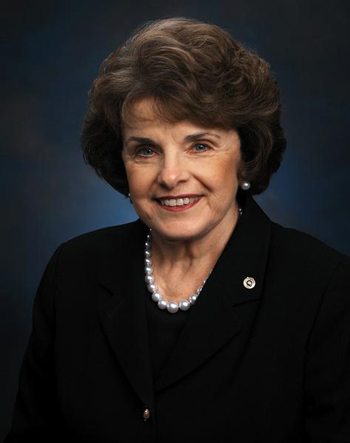February 14, 2021 - Washington - Senators Dianne Feinstein (D-Calif.) and John Cornyn (R-Texas) on Friday introduced the Stopping Doctor Shortages Act, a bill to close a loophole in  the Public Service Loan Forgiveness Program that excludes from eligibility certain physicians employed in California and Texas. Representative Josh Harder (D-Calif.) introduced a companion bill in the House.
the Public Service Loan Forgiveness Program that excludes from eligibility certain physicians employed in California and Texas. Representative Josh Harder (D-Calif.) introduced a companion bill in the House.
“Now more than ever, we’re seeing how much we depend on doctors for our public health,” said Senator Feinstein. “Throughout this pandemic, doctors have been on the frontlines, putting themselves at great risk to save lives. Unfortunately, some physicians in California and Texas aren’t eligible for student loan forgiveness because of a technicality in state law. It’s long past time we fix that. I’m proud to introduce this bill that will allow California and Texas doctors to qualify for the Public Service Loan Forgiveness Program.”
“With the COVID-19 pandemic still roiling across the country, we're asking more of our health care workers now than we ever have. Unfortunately, due to an oversight at the Department of Education, doctors in Texas aren't eligible for the same loan forgiveness program as their peers in other states,” said Senator Cornyn. “That's why it's critical that we do our part to fix this problem and ensure doctors at nonprofit organizations in Texas are afforded the same opportunity to reduce their debt as those working elsewhere.”
“We need more doctors in the Central Valley, it’s as simple as that,” said Representative Harder. “This bill brings more doctors to our communities by fixing the rules around federal loan repayment. If we pass this bill, we’ll see as many as ten thousand new physicians in our state in the next decade alone. That means more accessible and more affordable care for everyone who needs it.”
Background:
- In 2007, Congress created the Public Service Loan Forgiveness Program to forgive federal student loans for borrowers who work at least 10 years for nonprofit entities in the public sector, so long as they make 120 qualifying monthly payments. The program is meant to encourage people with significant student debt to enter high-demand fields.
- When the Public Service Loan Forgiveness Program was implemented, it required physicians to be directly employed by hospitals, which precluded California and Texas physicians from participating because California and Texas state laws prohibit hospitals from directly employing physicians.
- The Stopping Doctor Shortages Act clarifies that doctors in states that prohibit hospitals from directly employing them are still eligible for loan forgiveness as long as they meet every other criteria of the program.
Source: Senator Dianne Feinstein








